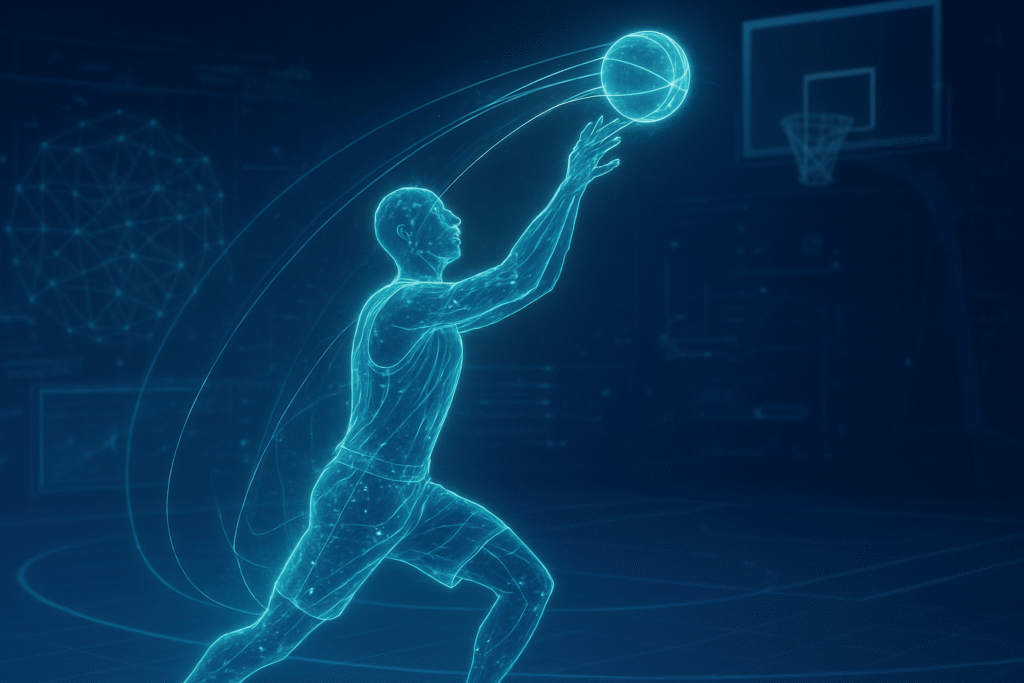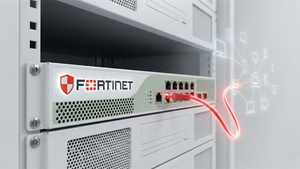
The crack of a perfect swish is no longer just a testament to countless hours on the court; for elite athletes like those with the Toronto Raptors (TSX: MLSE), it's increasingly the product of cutting-edge artificial intelligence. Advanced shooting technology, leveraging sophisticated computer vision, real-time data analytics, and biomechanical tracking, is fundamentally transforming how basketball players train, offering unprecedented precision and personalization. This AI-driven revolution is enabling athletes to dissect every nuance of their shot, accelerate skill acquisition, and elevate performance to new heights, signaling a paradigm shift in sports development.
This technological leap represents a significant advancement beyond traditional coaching methods, which often relied on subjective observation and less granular data. By providing immediate, objective feedback and deep analytical insights, these systems are not just improving shooting mechanics but are also fostering a data-driven culture within professional sports. The Raptors' adoption of such innovations highlights a broader trend across the athletic world: the embrace of AI as a critical tool for competitive advantage and optimized human potential.
Under the Hood: Dissecting the AI-Powered Shot
The Toronto Raptors' OVO Athletic Centre has become a crucible for this AI revolution, integrating several sophisticated systems to surgically analyze and refine player performance. At the core is Noah Basketball's Shot-Tracking System (Noahlytics), which has been operational since 2018. This system employs computer vision cameras mounted above each rim, meticulously measuring every shot's arc, depth, and left-right deviation. Beyond simple makes and misses, Noahlytics generates detailed heat maps, tracks individual player performance using facial recognition, and critically, provides automated verbal feedback in real-time. Imagine a voice instantly telling a player, "Arc too flat" or "Slightly left," allowing for immediate, on-the-spot corrections.
Complementing Noahlytics is a sprawling 120-foot (37-meter) multimedia analytic videoboard, installed in 2022. This massive screen integrates directly with the Noah system, displaying real-time shot metrics, game footage, and practice clips. It allows coaches to conduct instant "film sessions" directly on the court, pausing play to analyze actions visually and provide immediate teaching moments, a stark contrast to reviewing footage hours later.
Further pushing the boundaries is the MLSE Digital Labs and Amazon Web Services (AWS) (NASDAQ: AMZN) collaboration, dubbed "The Shooting Lab." This initiative utilizes advanced camera systems to capture intricate biomechanical data. By recording 29 different points of a player's body 60 times per second, the system analyzes details like elbow velocity, release angle, stance width, and shot trajectory. This level of granular data capture goes far beyond what the human eye or even slow-motion video can achieve, providing "surgical precision" in identifying minute mechanical flaws that impact performance and could lead to injury. This differs significantly from previous approaches, which relied heavily on coach's eye, manual data entry, or basic video analysis. The integration of AI, particularly computer vision and machine learning, allows for automated, objective, and highly detailed analysis that was previously impossible, accelerating skill acquisition and ensuring consistency. Initial reactions from the AI research community and industry experts emphasize the potential for these systems to democratize elite-level training and usher in an era of hyper-personalized athletic development.
AI's Courtside Impact: A Boon for Tech Companies
The rise of advanced AI in sports training has profound implications for AI companies, tech giants, and startups alike, creating a vibrant and competitive ecosystem. Companies like Noah Basketball, with its specialized shot-tracking system, stand to benefit immensely as more professional teams and even amateur organizations seek data-driven training solutions. Noah Basketball's success with over a dozen NBA teams, including the Clippers, Knicks, and Warriors, demonstrates the market demand for specialized AI sports tech.
Major tech giants are also heavily invested. Amazon Web Services (AWS) (NASDAQ: AMZN), as an official NBA partner, is leveraging its cloud infrastructure and AI/ML capabilities for biomechanical data capture, as seen with the Raptors' "Shooting Lab." Similarly, Google (NASDAQ: GOOGL) has showcased an "AI Basketball Coach" experiment using Pixel cameras and Vertex AI for motion capture and Gemini-powered coaching, while also being an official NBA sponsor. Microsoft (NASDAQ: MSFT) serves as the NBA's Official Technology, AI, and Cloud Partner, further cementing the role of these behemoths. NVIDIA (NASDAQ: NVDA) is even collaborating with the NBA on "Physical AI" robots designed to revolutionize training, strategy, and player health. These companies offer not just the AI models but also the foundational cloud computing and hardware infrastructure, giving them significant strategic advantages and market positioning.
The competitive landscape also sees a thriving startup scene. Companies like Veo Sports Technology (AI-driven camera systems for automated video analysis), Plantiga (AI-powered in-shoe sensors for performance assessment, part of NBA Launchpad), and Sportlogiq (computer vision for video processing) are innovating in niche areas. These startups often specialize in specific aspects of sports science or engineering, using agility to develop highly focused, often hardware-integrated solutions. While they may not have the R&D budgets of tech giants, their specialization and ability to demonstrate clear value propositions make them attractive for partnerships or even acquisitions. Traditional sports technology companies like Stats Perform and Sportradar are also integrating AI into their existing data and scouting services to maintain their competitive edge. This dynamic environment is leading to disruption of older, less data-intensive training methods and is fostering an arms race in sports technology, where AI is the primary weapon.
Beyond the Court: AI's Broader Significance
The application of advanced AI shooting technology by the Toronto Raptors is not an isolated incident; it's a microcosm of several overarching trends shaping the broader AI landscape. This hyper-personalization of training, where AI tailors programs to an athlete's unique biomechanics and performance data, mirrors the individualization seen in fields from healthcare to e-commerce. The emphasis on real-time data analytics and immediate feedback aligns with the increasing demand for instantaneous, actionable insights across industries, from financial trading to autonomous driving. Computer vision, a cornerstone of these shooting systems, is one of the most rapidly advancing fields of AI, with applications ranging from quality control in manufacturing to object detection in self-driving cars.
The wider impacts are profound. Foremost is the enhanced performance and precision it brings to sports, allowing athletes to achieve levels of refinement previously unimaginable. This translates to optimized training efficiency, as AI-driven insights direct focus to specific weaknesses, accelerating skill development. Crucially, by analyzing biomechanical data, AI can play a significant role in injury prevention, identifying subtle patterns of strain before they lead to debilitating injuries, potentially extending athletes' careers. Furthermore, the democratization of elite coaching is a major benefit; as these technologies become more accessible, amateur and youth athletes can gain access to sophisticated analysis once reserved for professionals. This data-driven approach empowers coaches and athletes to make informed decisions based on objective metrics rather than intuition alone.
However, this rapid integration of AI also brings potential concerns. Data privacy and security are paramount, as vast amounts of sensitive biometric and performance data are collected. Who owns this data, how is it protected, and what are the ethical implications of its use? There are also concerns about competitive equity if access to these expensive technologies remains uneven, potentially widening the gap between well-funded and less-resourced teams. An over-reliance on AI could also diminish the human element, creativity, and spontaneity that make sports compelling. Finally, the "black box" nature of some AI algorithms raises questions about explainability and transparency, making it difficult to understand how certain recommendations are derived, which could undermine trust.
Compared to previous AI milestones, advanced shooting technology builds upon the statistical analysis of "sabermetrics" (1960s) and early motion tracking systems like Hawk-Eye (2001). It extends beyond the strategic insights of DeepMind's AlphaGo (2016) by focusing on granular, real-time physical execution. In the era of ChatGPT (2022 onwards) and generative AI, sports tech is moving towards conversational AI coaching and highly personalized, adaptive training environments, signifying a maturation of AI applications from strategic games to the intricate biomechanics of human performance.
The Horizon: What's Next for AI in Sports Training
The future of advanced AI shooting technology in sports training promises even more transformative developments in both the near and long term. In the near-term, expect to see hyper-personalized training programs become even more sophisticated, with AI algorithms crafting bespoke regimens that adapt in real-time to an athlete's physiological state, performance trends, and even mental fatigue levels. This will mean AI not just identifying a flaw, but generating a specific, dynamic drill to address it. Enhanced computer vision will combine with increasingly intelligent wearable technology to provide even more granular data on movement, muscle activation, and physiological responses during a shot, offering insights into previously unmeasurable aspects of performance. The integration of immersive VR/AR training systems will also expand, allowing athletes to practice in simulated game environments, complete with virtual defenders and crowd noise, helping to build resilience under pressure.
Looking further ahead, the long-term vision includes the creation of "digital twins" – virtual replicas of athletes that can simulate countless training sessions and game scenarios. A digital twin could predict how a minor adjustment to grip or stance would impact a player's shooting percentage across an entire season, allowing for risk-free experimentation and optimal strategy development. Advanced predictive modeling will move beyond injury risk to accurately forecast future performance under various conditions, guiding dynamic training and recovery schedules. Experts also predict AI will evolve into a true "assistant coach" or "virtual coach," providing real-time tactical suggestions during competitions, analyzing opponent patterns, and recommending on-the-fly adjustments. There's also potential for neuro-training and cognitive enhancement, where AI-powered systems could improve an athlete's focus, decision-making, and reaction times, crucial for precision sports like shooting.
New applications on the horizon include personalized opponent simulation, where AI creates virtual defenders mimicking specific opponents' styles, and adaptive equipment design, where AI analyzes biomechanics to recommend or even design custom equipment. Challenges remain, particularly around data privacy and security as more sensitive data is collected, and ensuring ethical considerations and bias are addressed in AI algorithms. The cost and accessibility of these advanced systems also need to be tackled to prevent widening competitive gaps. Experts predict a global AI in sports market reaching nearly $30 billion by 2032, emphasizing that AI will augment, not replace, human capabilities, empowering athletes and coaches with "superpowers" of data-driven insight, while sports itself becomes a key innovation hub for AI.
The AI Revolution: A Game Changer for Sports and Beyond
The Toronto Raptors' embrace of advanced AI shooting technology stands as a powerful testament to the ongoing revolution in sports training. From Noah Basketball's real-time feedback to AWS-powered biomechanical analysis, these innovations are fundamentally reshaping how athletes hone their craft, providing an unprecedented level of precision, personalization, and efficiency. This development is not merely an incremental improvement; it marks a significant milestone in AI's history, demonstrating its capacity to augment human performance in highly complex, physical domains.
The implications extend far beyond the basketball court. This trend highlights the increasing confluence of AI, big data, and human performance, setting a precedent for how AI will integrate into other skill-based professions and daily life. While concerns regarding data privacy, competitive equity, and the human element must be proactively addressed, the benefits in terms of injury prevention, optimized training, and the democratization of elite coaching are undeniable.
In the coming weeks and months, watch for further announcements from major tech companies solidifying their partnerships with sports leagues, the emergence of more specialized AI sports tech startups, and the continued integration of VR/AR into training protocols. This AI-driven era promises a future where athletic potential is unlocked with unparalleled scientific rigor, forever changing the game, one perfectly analyzed shot at a time.
This content is intended for informational purposes only and represents analysis of current AI developments.
TokenRing AI delivers enterprise-grade solutions for multi-agent AI workflow orchestration, AI-powered development tools, and seamless remote collaboration platforms.
For more information, visit https://www.tokenring.ai/.




